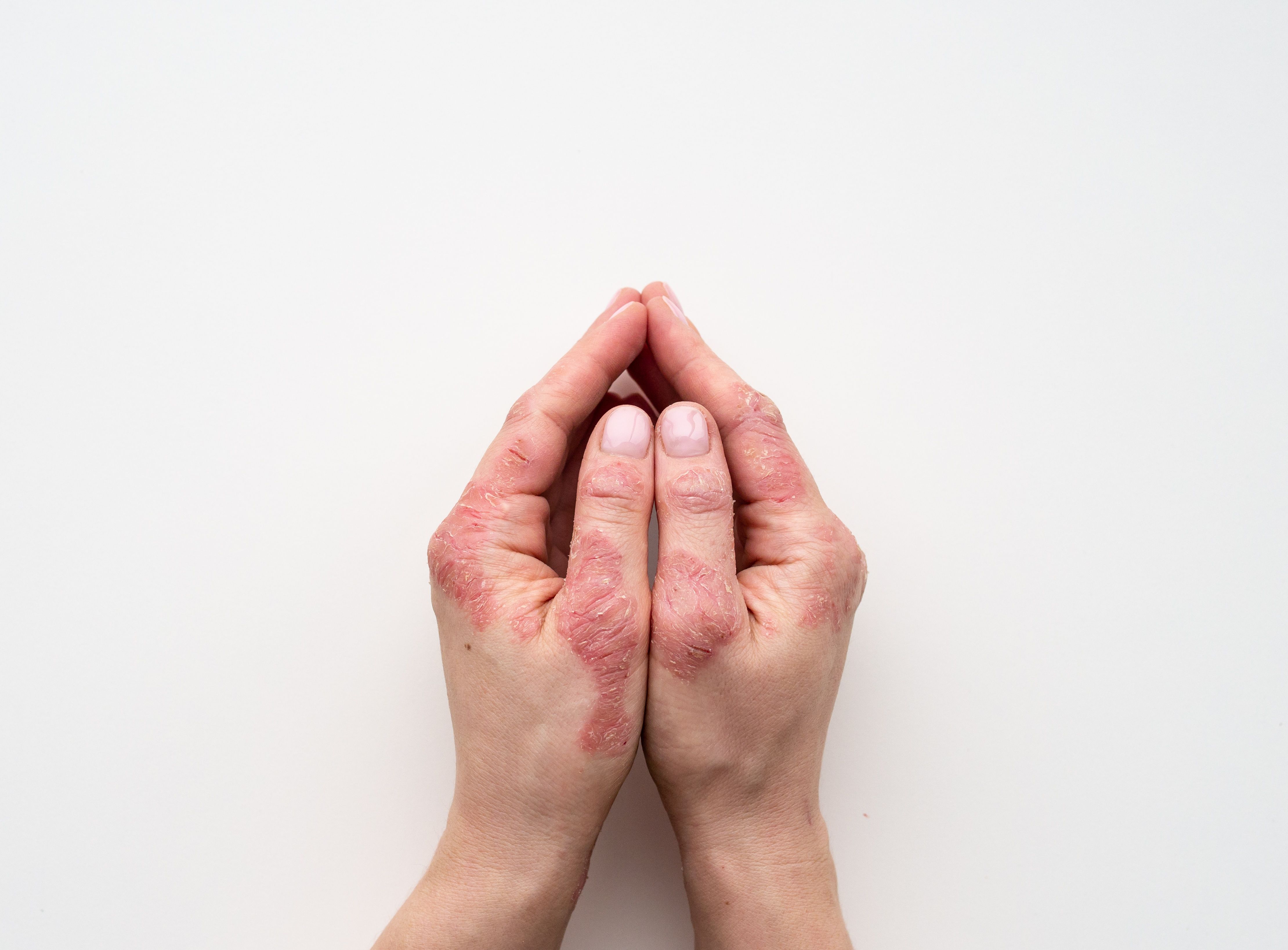- Center on Health Equity & Access
- Clinical
- Health Care Cost
- Health Care Delivery
- Insurance
- Policy
- Technology
- Value-Based Care
Evaluating Work Productivity, Efficacy and Safety of Tildrakizumab in Patients With Plaque Psoriasis
Two posters presented at the 2023 Fall Clinical Dermatology Conference assessed phase 4 study findings on tildrakizumab in patients with moderate to severe plaque psoriasis.
Two posters presented at the 2023 Fall Clinical Dermatology Conference found treatment with tildrakizumab significantly improves work productivity and had significant efficacy and favorable safety profile results among individuals with moderate to severe plaque psoriasis.

The first study analyzed improvement in work productivity and reduction in activity impairment with tildrakizumab, an anti-IL-23 p19 monoclonal antibody. Because psoriasis is a chronic, inflammatory skin disorder that impacts all aspects of a patient’s life, including physical health, quality of life, and work productivity, the disease poses a substantial economic burden on the health care system and its patients.1
This was a phase 4, multicenter, uncontrolled, open-label, real-world study (NCT03718299) that took place over 64 weeks in patients with moderate to severe plaque psoriasis. Using the Work Productivity and Activity Impairment Questionnaire: Psoriasis (WPAI:PSO), the researchers obtained patient information pertaining to the amount of absenteeism, presenteeism, and daily activity impairment attributed to psoriasis. Additionally, the researchers analyzed domain scores in the intention-to-treat population based on survey values, as well as the differences between baseline and posttreatment self-assessment values.
A total of 55 patients were enrolled in the study, but only 31 completed the survey at 64 weeks. Most patients were male (n = 28) and White (n = 52), and they had a mean (SD) age of 48.6 (15.3) years.
At 16 weeks, patients reported significant improvements in work productivity compared with baseline values for all WPAI:PSO domains except absenteeism, which the researchers attributed to a near-zero baseline value. The mean (SD) domain score for presenteeism decreased significantly (P < .001) from baseline (20.5 [21.7]) to week 64 (2.6 [5.8]). Furthermore, the mean (SD) score for total activity impairment decreased significantly (P < .001) from baseline (20.9 [22.2]) to week 64 (2.6 [5.8]).
The second poster aimed to measure the long-term effectiveness of tildrakizumab according to clinical improvement and disease severity, and safety after 64 weeks of treatment under real-world conditions as part of the phase 4 study (NCT03718299). Patients enrolled in this study received 100 mg of tildrakizumab at week 0, week 4, and every 12 weeks after through week 52.2
The researchers measured effectiveness based on change from baseline in percentage of body surface area (BSA) affected, static Physician Global Assessment (sPGA), and BSA × sPGA through week 64, as well as Psoriasis Area and Severity Index (PASI) scores through week 52. Safety was measured through week 64 based on the incidence of adverse events.
Of the 55 patients enrolled, 45 were assessed at the end of the study. These patients showed significant (P < .001) improvements in measures in disease severity based through week 64:
- Mean (SD) BSA decreased from baseline (14.5 [11.5]) to week 64 (2.1 [3.6])
- Mean (SD) sPGA decreased from baseline (3.2 [0.6]) to week 64 (1.0 [1.0])
- Mean (SD) BSA × sPGA decreased from baseline (47.0 [41.5]) to week 64 (4.6 [9.4])
Additionally, patients had significant (P < .001) mean changes from baseline in PASI score at weeks 4, 16, 28, and 52, indicating clinical improvement of psoriasis over time, and at week 52, 81.8%, 54.5%, and 30.9% of patients achieved PASI 75, PASI 90, and PASI 100 response, respectively.
Furthermore, 34 (61.8%) patients experienced a total of 85 treatment-emerged adverse events (TEAEs) through week 64. Of these events, 74.1% were mild in severity, 21.2% were moderate, and 7.3% were severe. The most common TEAEs were psoriasis (12.7%), hypertension (9.1%), and dermatitis (5.5%). Two (3.6%) patients experienced serious TEAEs that led to discontinuation, which were transitional cell carcinoma and COVID-19 pneumonia. However, no TEAEs were related to tildrakizumab treatment, and no deaths occurred during the study.
References
1. Bhatia N, Heim J, Schenkel B, et al. Psoriasis-related work productivity improvement from a phase 4 real-world study of tikdrakizumab in patients with moderate-to-severe plaque psoriasis. Poster presented at: 2023 Fall Clinical Dermatology; October 19-22, 2023; Las Vegas, NV.
2. Bhatia N, Vasquez J, Schenkel B, et al. Real-world effectiveness and safety in a phase 4 study of tildrakizumab in patients with moderate-to-severe plaque psoriasis. Poster presented at: 2023 Fall Clinical Dermatology; October 19-22, 2023; Las Vegas, NV.
